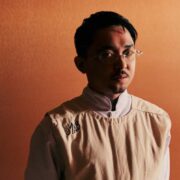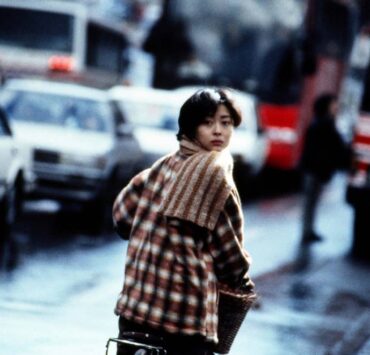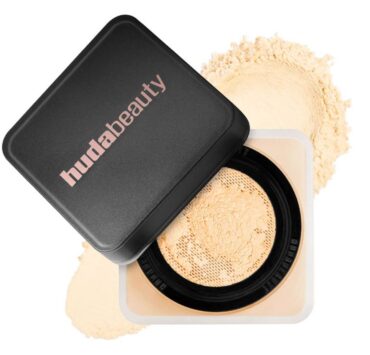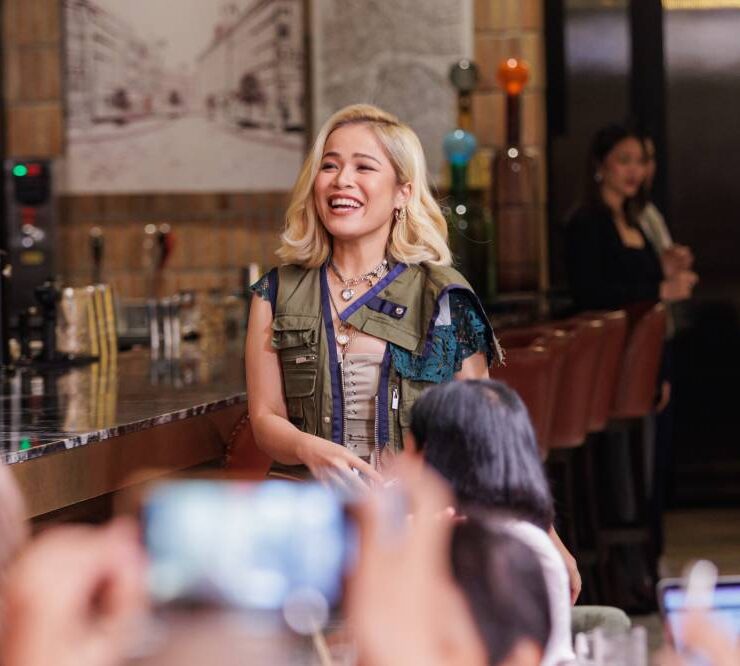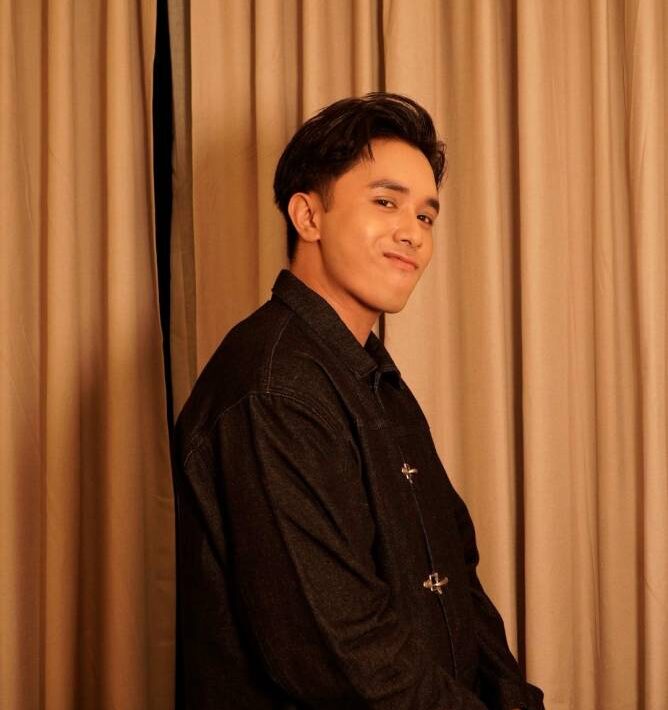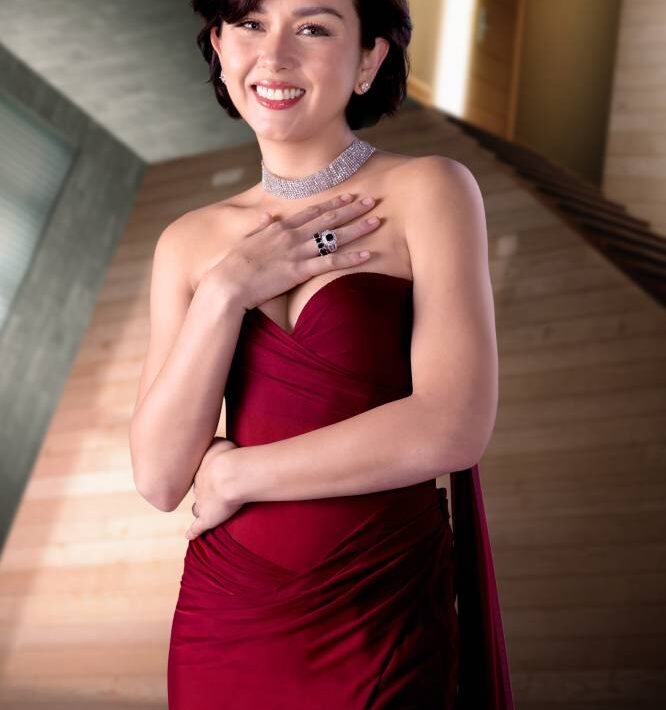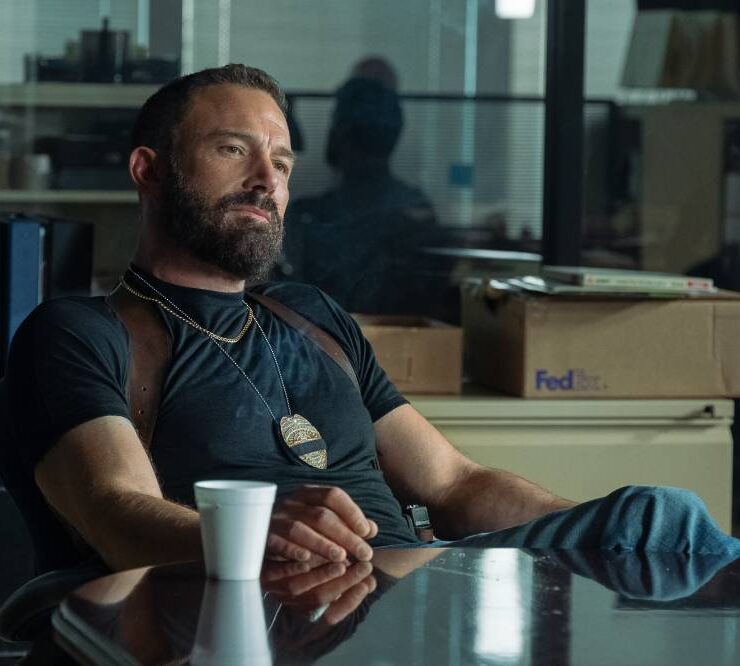Nostalgia is a friend
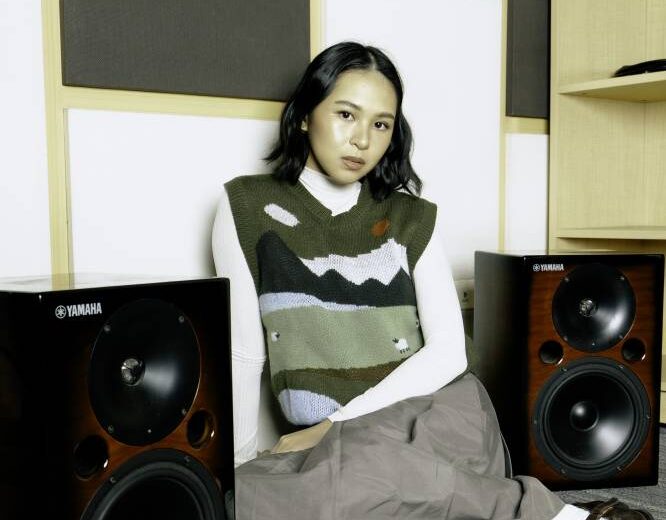
Like many of us, Clara Benin thinks about parallel universes, too. She wrote of it in 2019, and though she had ruminated about a romantic interest in the song, she admits that sometimes, the thought of how differently life and her music could have turned out also crosses her mind.
“I do think about that sometimes,” she tells us. She’s taken our team around MINT College, her alma mater, where she had written and recorded her debut album, “Human Eyes,” a decade ago.
“But I like how raw and traditional ’Human Eyes’ was, and I think I wouldn’t be where I am today if it weren’t for that whole process,” Benin continues.
In the past 10 years, Benin—best known for her lyrical introspection as she carries relatable vulnerabilities and self-discoveries in a tender, airily angelic tone—has evolved. From her creative process to her experiments in terms of sound, Benin’s exploration through the OPM scene has taken her to stages all over the world, like homegrown Wanderland, SXSW in Sydney, Australia, Music Matters in Singapore, and even the Zandari Festa in South Korea.
Much has changed in the music industry since she started, she muses, but as she revisits past works and reimagines new ways to present them—much like in her upcoming two-night concert “Born on a Rainy Night” at the Metropolitan Theater Manila—looking back at the past is what’s inspiring her future work.
We caught up with Benin to learn more about what went into “Human Eyes” and “Riverchild,” the albums that launched her to becoming the country’s indie darling.
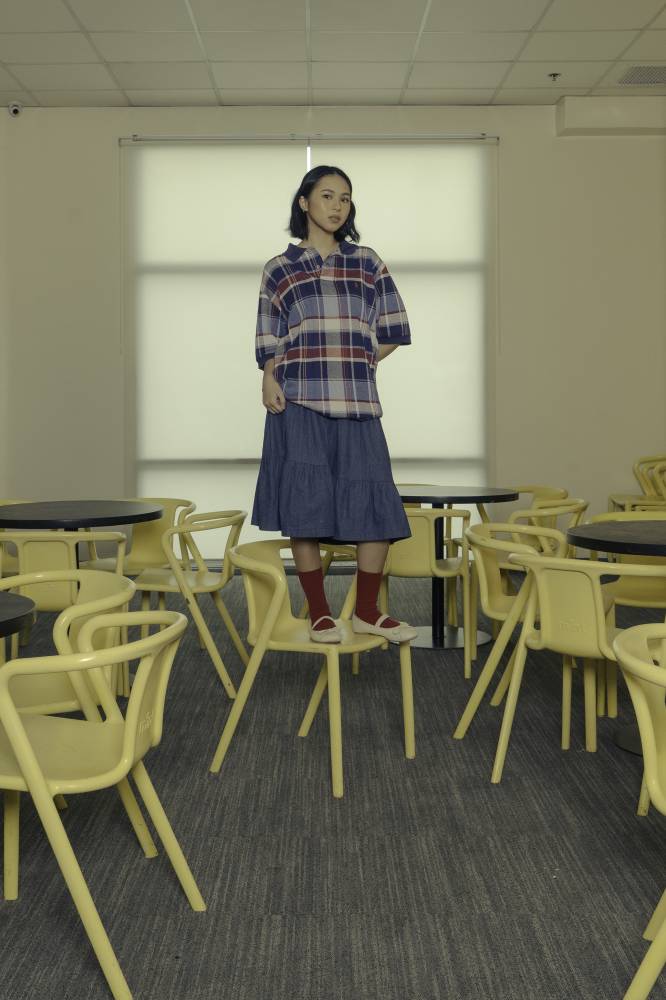
It’s been roughly a decade since “Human Eyes” and “Riverchild.” You’ve explored so many new sounds since then—what are some beliefs or perspectives you held 10 years ago that have changed and shaped the artist you are today?
I think back then, when I made “Human Eyes,” it was my first album, and I was quite young. I really cared about what other people thought of my music. I was a people-pleaser back then. And I think, I just learned that not everyone’s gonna like my music and [that] the right people will find me.
Having been part of the music industry and the OPM scene for a decade already, what can you say has changed and how has it affected your approach to music? How did you adapt?
There’s definitely a lot of changes in the music industry now. I remember when I started, wala pang Spotify. Hindi pa uso ‘yong digital streaming. And then [when] that came along, and we all had to adapt to it. It’s a challenge now, especially being in the industry for 10 years… so much has changed. But I just try as much as possible to stay true to my music.
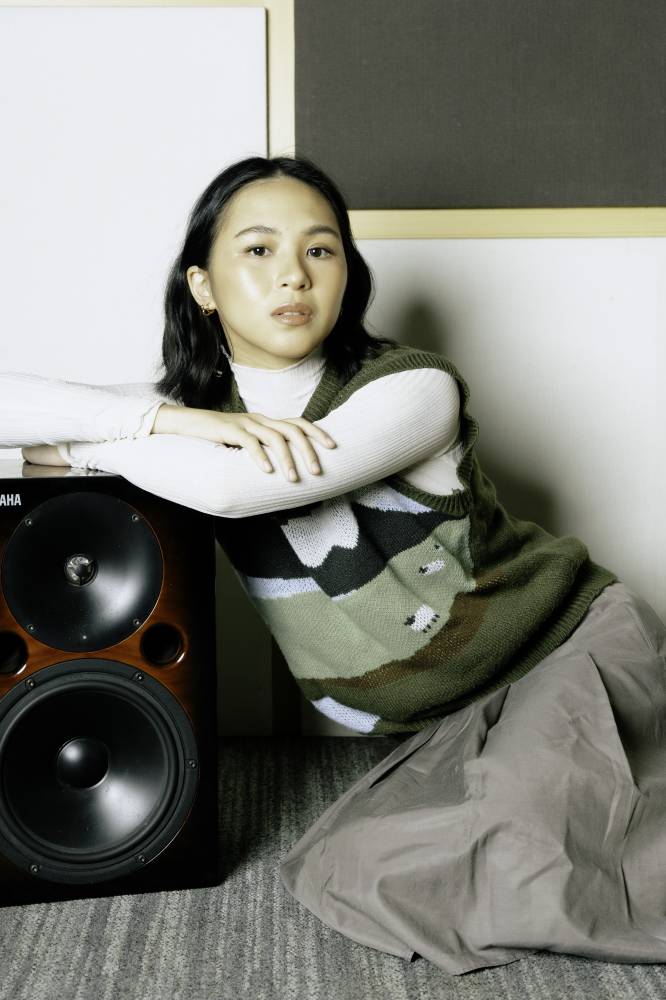
Can you paint a picture of who Clara was back then—10 years ago, writing and producing “Human Eyes”? What kind of person and energy went into that album? What was different then a few years later with “Riverchild”?
With “Human Eyes,” I kind of approached the production of that… it was a very traditional way of how I produced that album. Acoustic guitar, vocals, harmonies, drums. It was very traditional. And I think with “Riverchild,” I was a bit more confident experimenting with how I recorded.
With “Human Eyes,” I was very particular, like, “Oh, the micing has to be right.” I had a measuring tape and everything. With “Riverchild,” I was just like, whatever, I want the room to be heard. I want whoever’s listening to my music… to feel like we’re in the same room together. I was kind of more open to experimenting with the production in that way.
I think with every album that I continued making, I began to explore more, and at the same time, I feel I’ve been very true to myself pa rin.
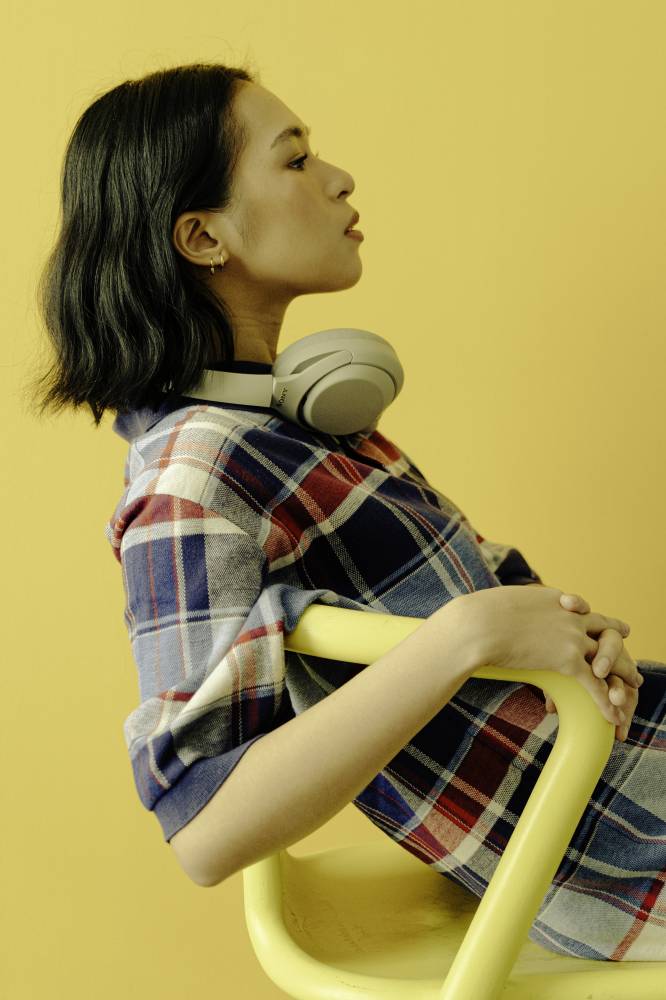
Now that you’re presenting these songs a decade later, to fans who’ve been with you from the start, what inspired you to revisit them? How did you approach reimagining these tracks for a live performance today?
Minsan Studio, the producers of the show, approached me… I think last year, and asked me if I was open to doing a concert in the Metropolitan Theater with the orchestra. And the first thing that came into my mind was, sakto, “Human Eyes” and “Riverchild.” They’re both turning 10 this year. That’s what I told them: I wanna do like a celebration of my first album.
I feel like it’s worth celebrating, since it is my first album, and a lot of my listeners now have been with me since then. This is kind of my way of also thanking the fans who have been there from the start, and I think they’re really going to enjoy this because we’re going to reimagine the songs with an orchestra, which is a dream come true of mine.
I notice, for example, with “Human Eyes” and “Riverchild,” that these are earlier works that you’re revisiting and reimagining now, with new arrangements. And recently, you also came out with a vinyl of “Befriending My Tears,” a year after the album was originally released. Would you say this “revisiting and reimagining” older work is an active part of her process or practice as an artist?
It has been, actually. Revisiting my older songs have been really inspiring me to make new music and write more music. So yeah, I’ve actually been writing a lot, more than ever, I would say. So right after the concert, I going to head to the studio and make more music.
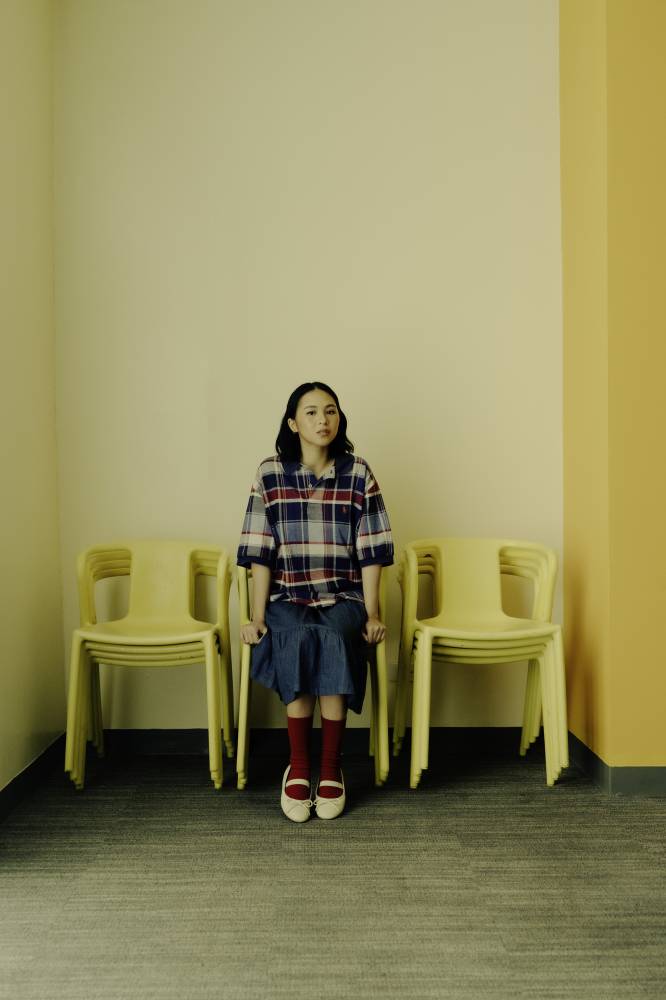
Do you ever think about a parallel universe where these albums might have turned out differently—whether in sound, direction, or even how it influenced your career? Could you share some of that backstory?
I do think about that sometimes. But I don’t know, I like how raw and traditional “Human Eyes” was, and I think I wouldn’t be where I am today if it weren’t for that whole process. Super cheesy, but yeah.
“Human Eyes” marked the beginning of your career. Back then, you were still in college, creating music with your classmates. How does that compare to making it now, as your full-time profession?
Well, making it back then was a lot more fun. It was all play, no pressure at all. It was all just fun and games lang. But now [that] it’s my full time job, there’s more responsibility, and I have to think about the business side of it. Unlike before, that I’m just really… whenever I want, post whenever I want, but now there has to be… I have to be more strategic with it.
It’s definitely a lot different, but I always try to remember that… I try to still have that joy that I had from the first time that I started making music. And I’m also a huge music lover first, before this became my career, so I’ll always be that music fan pa rin.













